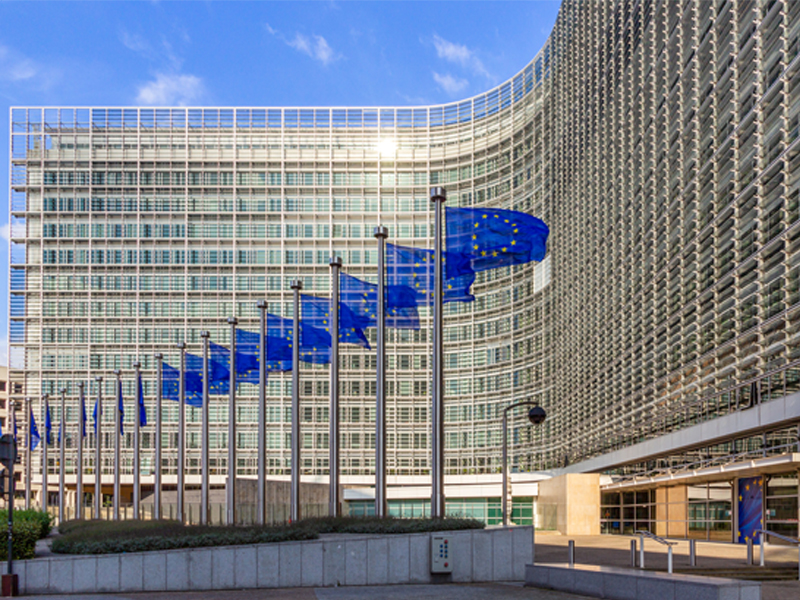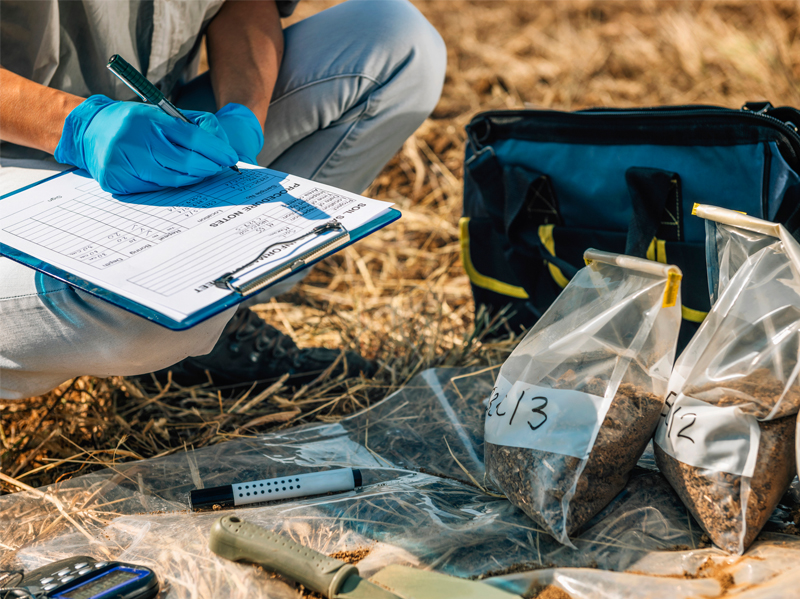
The field of sustainability reporting is entering a significant phase of transformation that has the potential to set direction for disclosure over the next decade and more.
The significance of this moment gets to the heart of why we believe companies should report in the first place: reporting is not an end itself, but rather a way to inspire transformation and performance improvement at companies, and a means by which investors, civil society organizations, and governments can make better decisions and judgments about how to create a sustainable and more equitable future.
The list of developments giving us cause for optimism is long and the trajectory of travel on multiple fronts is encouraging. BSR member companies have a great opportunity to shape outcomes by engaging with governments and multi-stakeholder standard setters that are working to improve, align, and harmonize global reporting standards and their governance processes.
We’ve listed some of the key developments at the end of this blog, including those from the Global Reporting Initiative (GRI), the Sustainability Accounting Standards Board (SASB), the Task Force on Climate-Related Financial Disclosures (TCFD), the International Integrated Reporting Council (IIRC), the International Financial Reporting Standards (IFRS) Foundation, and Accountancy Europe. We are especially pleased to see the emphasis on alignment and harmonization in CDP, CDSB, GRI, IIRC and SASB Statement of Intent to Work Together Towards Comprehensive Corporate Reporting, and regulatory action coming from the proposed changes to the Non-Financial Reporting Directive (NFRD) in Europe.
BSR’s objective is to strengthen sustainability reporting by promoting alignment, harmonization, and integration into business, and we are engaging with many of these entities with this intent in mind.
We believe that the sustainability reporting ecosystem and the use of sustainability reporting frameworks and standards by companies should achieve three complementary outcomes:
- Business transformation and performance improvement at companies, by enabling investment in resilient business strategies that improve company performance.
- Better outcomes for sustainability, by focusing board and management attention on how the company can help achieve Sustainable Development Goals, accomplish the Paris Agreement targets, and fulfill international human rights standards.
- Decision-making that accelerates progress towards an equitable and sustainable economy, by eliciting information from companies needed by investors, customers, civil society organizations, and governments to make informed decisions that support a rapid transition to sustainability.
However, as three decades of sustainability reporting has clearly illustrated, these three goals can only be achieved if reporting frameworks and standards are practical for companies to implement.
With these impacts and outcomes in mind, we have developed a perspective—arising from nearly three decades of BSR insight into what works and what doesn’t—to guide our engagement in dialogue about the future of reporting. This perspective is summarized in the following chart, which combines common elements of reporting frameworks and standards, such as reporting principles and metrics, with the practical solutions that we think are needed to achieve our three desired outcomes.
We believe that the future of reporting should be based on the following interrelated and interdependent components:
- Reporting principles: Principles are fundamental to effective reporting by helping ensure that the right information is reported and is of sufficient quality. In combination, the IIRC and GRI provide well-established reporting principles that can form the basis of a more aligned and harmonized approach.
- Resilient business strategies: Companies should describe how they establish resilient business strategies that create long term value for all stakeholders. The TCFD’s core elements of governance, strategy, and risk management—and especially scenario planning and futures thinking—provide an excellent model for an approach that links reporting with business strategy. This structure can replace other conceptual frameworks for describing company management approaches.
- Comparable disclosures and metrics: Ideally, companies would be able to utilize a long list of potentially material sustainability disclosures that, though arising from different standards-setting organizations, are aligned, consistent, interoperable, and of similar quality. Taken in combination, these disclosures and metrics would meet the information needs of a wide range of report users and enable enhanced company performance and tracking.
- “Core” reporting: Five years ago, Accountancy Europe shared the concept of “core and more” as a model for smarter corporate reporting. Inspired by this model, which is conceptually very similar to BSR’s own “reporting triangle approach;” we believe that companies can publish succinct “core reports” that meet the needs of (a) investors, via annual reports and (b) a broader range of stakeholders, via sustainability reports, with clear connectivity between the two. Further, while annual reports have a consistent structure—we all know our way around a Form 10-K—the goal of creating a more equitable and sustainable economy would benefit from a similarly consistent structure in sustainability reporting.
- “More” reporting: Companies can publish more detailed reports that are targeted at specific audiences; examples include disclosures covering tax payments, country- or site-level impacts, product-level impacts, diversity and inclusion, human rights, climate change, lobbying, privacy, and freedom of expression. We believe that issue-specific reporting is an especially exciting area for innovation, as captured by Uber’s recent safety report and transparency reporting on law enforcement relationships.
These elements can be brought together with an integrated, joined-up, and interoperable approach to standard setting by the various reporting framework and standards organizations, a direction they all appear to be moving in.
This thinking brings together proposals we and others have developed and shared previously. Most notably, our perspective is very similar to the Statement of Intent to Work Together Towards Comprehensive Corporate Reporting recently published by CDP, CDSB, GRI, IIRC and SASB, a very encouraging initiative that we are pleased to support.
Indeed, it is this convergence of thinking—and the very practical nature of it—that gives us the most cause for optimism that a better future for reporting is well within our collective grasp.
Business urgently needs to embrace resilient business strategies, supported by a system of company reporting that is fit for that purpose; we are optimistic that a tipping point leading in that direction is finally here.
Key Developments in Reporting
In June 2020, the Global Reporting Initiative (GRI) published draft revisions of its universal standards for public review. Among other items, these revisions incorporate the UN Guiding Principles on Human Rights (UNGPs) and include a new definition of materiality that is more directly focused on a company’s impacts outward on the economy, environment, and people. These changes are very positive indeed: on materiality, they provide the building blocks for improved standards alignment; on human rights, they will motivate increased uptake of the UNGPs.
In September 2020, the Sustainability Accounting Standards Board (SASB) published proposed changes to its conceptual framework that, among other things, reflect a more global and less US-centric context. Like the GRI, these changes provide the building blocks for improved standards alignment.
In September 2020, CDP, CDSB, GRI, IIRC, and SASB issued a Statement of Intent to Work Together Towards Comprehensive Corporate Reporting describing a shared intent to provide joint guidance on how reporting frameworks and standards can be applied together, a vision of how they can complement financial generally accepted accounting principles (Financial GAAP), and a program of collaboration—for example, to establish a globally agreed set of sustainability topics and related disclosure requirements.
The Task Force on Climate-related Financial Disclosures (TCFD) is seeing a significant uptake, with over 1000 organizations now in support. It is also becoming ever more common to remark upon the relevance of the TCFD framework—especially the emphasis on scenario analysis and futures methodology—to issues beyond climate change, such as resilient business, economic inclusion, and digital governance.
In the context of the sustainable economy objectives set out in its European Green Deal, the European Union is undertaking a consultation on revisions to the Non-Financial Reporting Directive that has the potential to drive increased standards alignment and increase the availability of reliable, comparable, and relevant non-financial data from companies. The responses to the consultation from both SASB and the GRI provide excellent insights into excellent potential offered by this revisions, highlighting both the usefulness of the EU’s “double materiality” concept—material impacts on society and material impacts on business prospects—and the potential to utilize existing sustainability reporting standards as part of an improved regulatory framework in Europe.
Accountancy Europe has been leading a project that sets out a vision for “interconnected standard setting for corporate reporting” intended to generate a more collaborative approach to standards setting and increased connectivity between conceptual frameworks for financial and non-financial reporting. The International Integrated Reporting Council (IIRC) has been pursuing similar notions as it seeks to build upon increased uptake of its integrated thinking and value creation concepts.
The International Financial Reporting Standards (IFRS) Foundation is consulting on broadening its mandate to include sustainability issues. Meanwhile, the International Federation of Accountants (IFAC) has called for the creation of an International Sustainability Standards Board to sit alongside the International Accounting Standards Board (IASB) under the IFRS Foundation.
The World Economic Forum has published common metrics for the consistent reporting of sustainable value creation, mainly drawing upon the prior work of CDSB, GRI, IIRC, SASB, and the TCFD.
BSR’s latest sustainability insights and events straight to your inbox.
Topics
Let’s talk about how BSR can help you to transform your business and achieve your sustainability goals.










